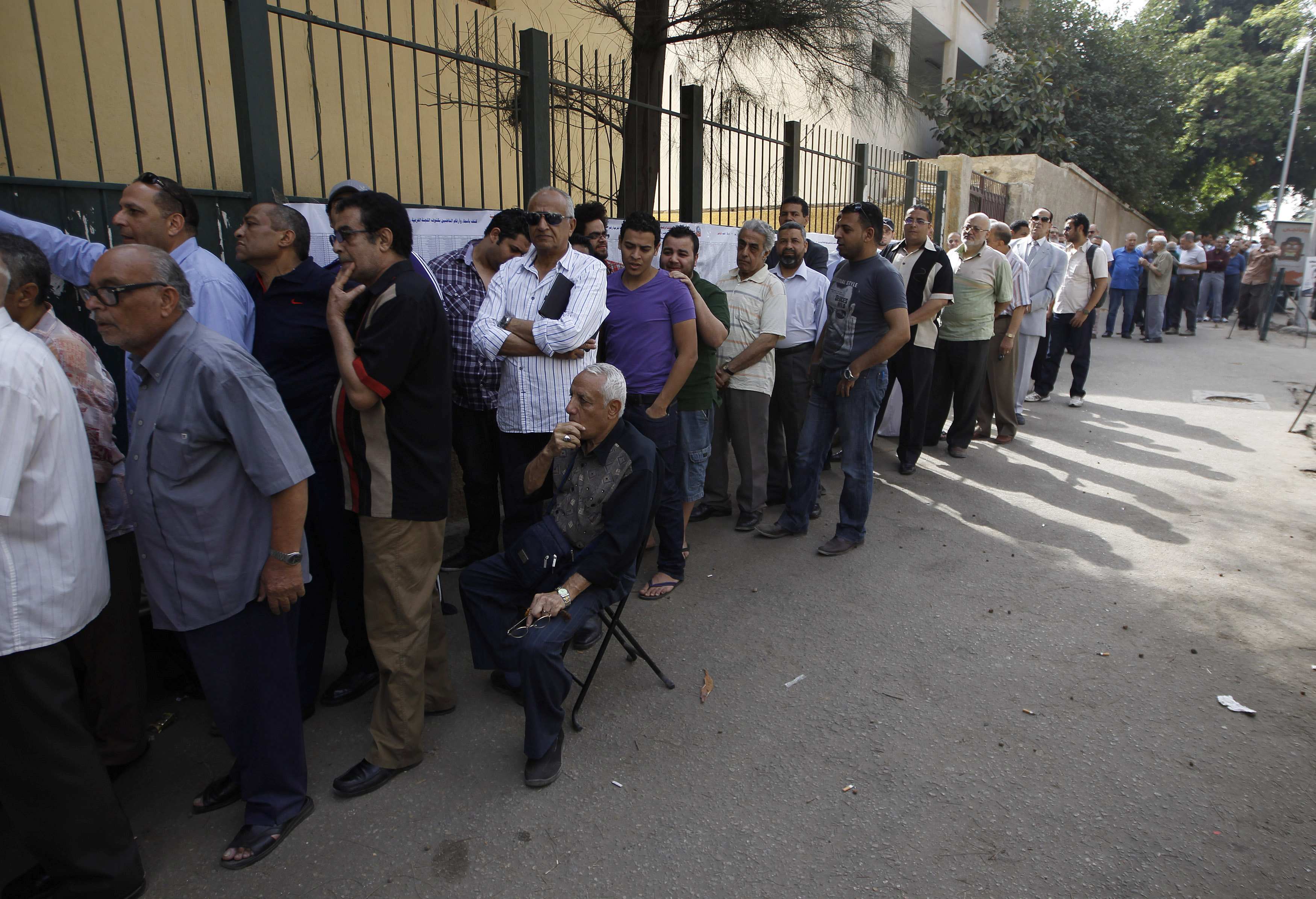Latest NEWS
- Aswat Masriya, the last word
- Roundup of Egypt's press headlines on March 15, 2017
- Roundup of Egypt's press headlines on March 14, 2017
- Former Egyptian President Hosni Mubarak to be released: lawyer
- Roundup of Egypt's press headlines on March 13, 2017
- Egypt's capital set to grow by half a million in 2017
- Egypt's wheat reserves to double with start of harvest -supply min
- Roundup of Egypt's press headlines on March 12, 2017
Campaigning for Egypt's parliamentary elections to kick-off in hours

Men wait in line outside a polling station in Cairo May 23, 2012. Egyptians queued patiently to vote on Wednesday, eager to pick their leader for the first time in a national history dating to the pharaohs, with Islamists and secular-minded rivals who served under deposed President Hosni Mubarak heading the field - REUTERS/Ammar Awad
CAIRO, Sept 28 (Aswat Masriya) - Candidates and parties vying for a seat in Egypt's House of Representatives will launch their campaigns Tuesday, promising two weeks of cut-throat competition ending on Oct. 16.
In each of the two phases of the vote, campaign silence begins at noon on the day before voting starts.
Each candidate is allowed to spend a maximum of EGP 500,000 (around $63,850) on campaigning and an additional EGP 200,000 ($25,540) if they qualify for run-offs.
Candidates are obligated to open accounts in only two state-owned banks – the National Bank of Egypt or Banque Misr – and with Egypt Post Office to deposit campaign funds and donations to which the High Election Committee will have access to ensure compliance with spending caps.
Voting in the first phase at home and abroad will run from Oct. 17-19 and will include 14 governorates: Giza, Fayoum, Beni Suef, Minya, Assiut, New Valley, Sohag, Qena, Luxor, Aswan, Red Sea, Alexandria, Beheira and Matrouh.
The second phase, which will run from Nov. 21-23, includes Cairo, Qalyubia, Daqahliyah, Menoufia, Gharbia, Kafr el-Sheikh, Sharqiya, Damietta, Port Said, Ismailia, Suez, North Sinai and South Sinai.
Voters will elect 448 independent members and 120 based on party-lists. The president may appoint up to 28 members, which adds up to a total of 596 seats.
The parliamentary elections were originally scheduled to be held earlier this year, with the two phases set to be held in late March and late April.
They were postponed when the the Supreme Constitutional Court ruled in March against the constitutionality of an article in the constituency law, which was issued by President Abdel Fattah al-Sisi.
In its ruling, the court decided that Article 3 of this law is unconstitutional. The Supreme Court's rulings are binding to the state and cannot be appealed.
One week later, the same court ruled that Article 8 of the parliamentary elections law, which banned dual nationals from running in the elections, was unconstitutional.
Over the course of the past few months, a committee headed by Egypt's transitional justice and parliamentary elections minister amended these laws.
Once held, the parliamentary elections would mark the completion of the roadmap which Sisi announced to the nation in July 2013, following the ouster of Islamist president Mohamed Mursi by the military after mass protests against his rule.










